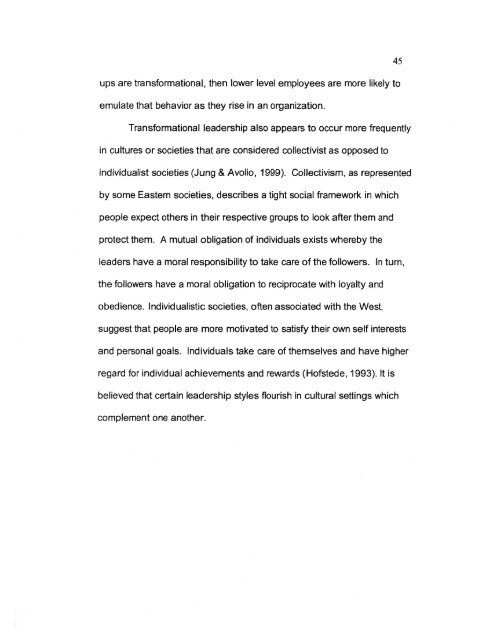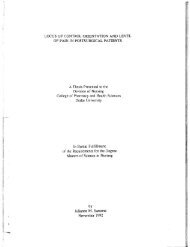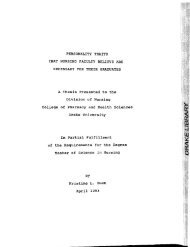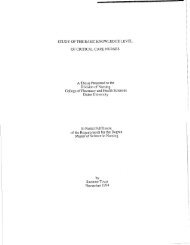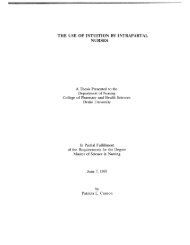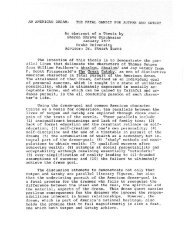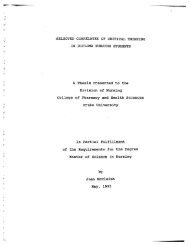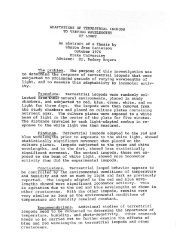LEADERSHIP CHARACTERISTICS OF ... - Drake University
LEADERSHIP CHARACTERISTICS OF ... - Drake University
LEADERSHIP CHARACTERISTICS OF ... - Drake University
Create successful ePaper yourself
Turn your PDF publications into a flip-book with our unique Google optimized e-Paper software.
ups are transformational, then lower level employees are more likely to<br />
emulate that behavior as they rise in an organization.<br />
Transformational leadership also appears to occur more frequently<br />
in cultures or societies that are considered collectivist as opposed to<br />
individualist societies (Jung & Avolio, 1999). Collectivism, as represented<br />
by some Eastern societies, describes a tight social framework in which<br />
people expect others in their respective groups to look after them and<br />
protect them. A mutual obligation of individuals exists whereby the<br />
leaders have a moral responsibility to take care of the followers. In turn,<br />
the followers have a moral obligation to reciprocate with loyalty and<br />
obedience. lndivid ualistic societies, often associated with the West,<br />
suggest that people are more motivated to satisfy their own self interests<br />
and personal goals. Individuals take care of themselves and have higher<br />
regard for individual achievements and rewards (Hofstede, 1993). It is<br />
believed that certain leadership styles flourish in cultural settings which<br />
complement one another.<br />
45


